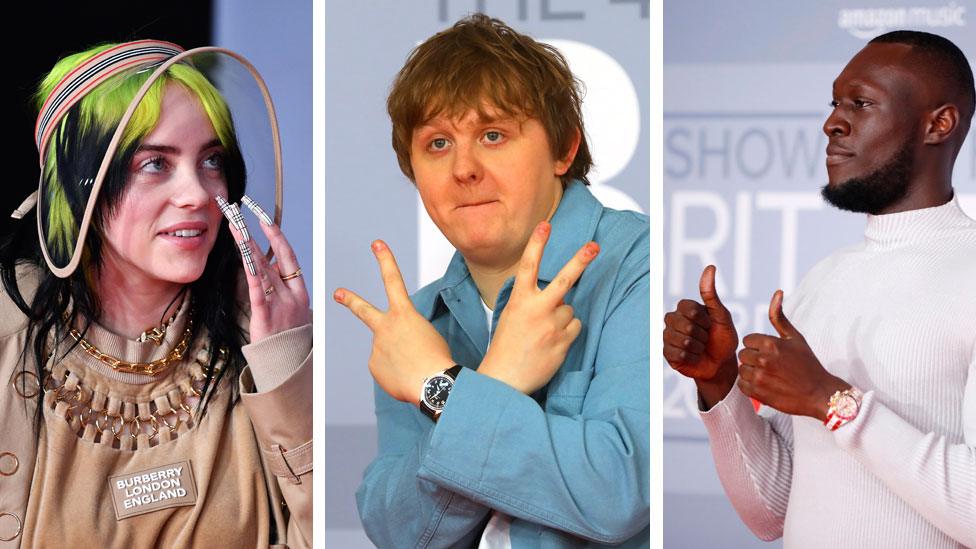The Brits mark turning 40 by refusing to look back
- Published
- comments
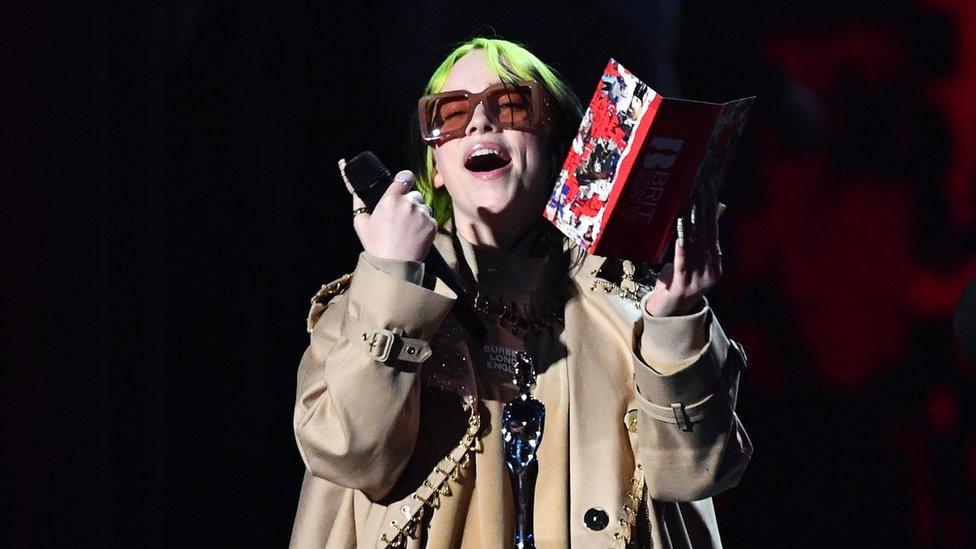
Billie Eilish, who won best international female, is one of the artists changing the very fabric of pop
It may have been the Brits' 40th birthday, but this year's ceremony felt more like a coronation of the new generation of pop stars - from Billie Eilish to Dave, and Lewis Capaldi to Lizzo.
A-listers who would have dominated the show just four years ago, from Taylor Swift to Ed Sheeran, didn't even get a look-in. But as pop evolves at an ever-increasing tempo, their absence was not as noticeable as you might have expected.
Dave delivered the night's break-out performance: A visceral dissection of the way Britain treats immigrants and black youth, that culminated in him calling the Prime Minister a "real racist".
Along the way, the Streatham-born rapper criticised the British media's treatment of Meghan Markle in comparison to how it treated Kate Middleton.
"Equality is a right, it doesn't deserve credit," he rapped. "If you don't wanna get it, then you're never gonna get it / How the news treats Kate versus how they're treating Meghan."
This video has been removed for rights reasons
Poised and calm despite his indignation, the 21-year-old's words hit hard, delivering one of those indescribable "Brits moments" that every artist seeks, but few ever pull off.
"That performance has been on my mind for months now," Dave told Radio 1's Newsbeat after coming off stage. "I've been rehearsing it for about six weeks, but I said what I needed to say and I'm happy."
He may have stolen the show, but the rest of the ceremony highlighted a new wave of young innovators who are re-writing the rules of pop.
Billie Eilish, for one, makes hit records in her childhood bedroom, crafting a sound that's dark, sinister and strangely intimate - with vocals whispered in your ear like a confession.
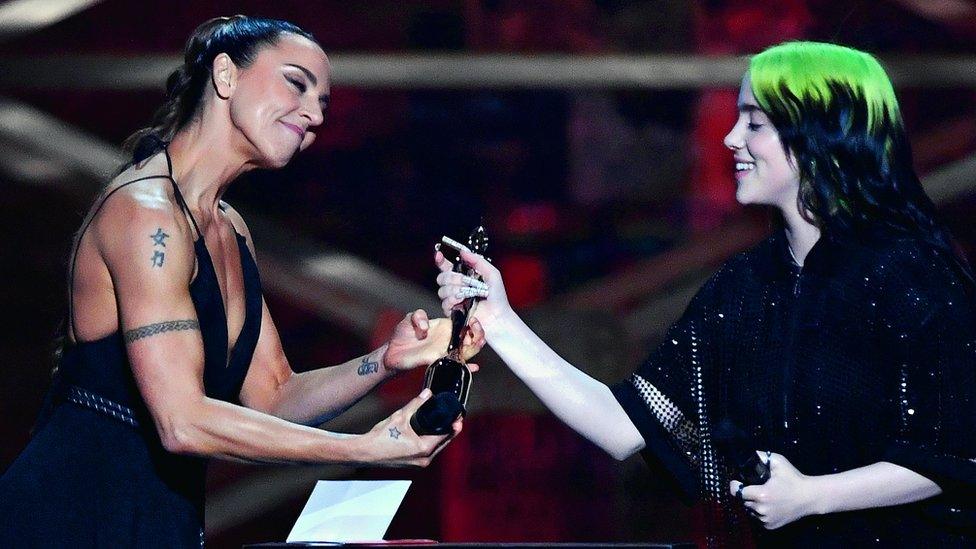
Spice Girl Mel C hands Billie Eilish her award for best international female
Her Bond theme, premiered at the Brits, is one of her more traditional songs; but the debut album that won her best international female is notable for the way it disrupts the traditional verse-chorus structures of pop, surprising the listener at every turn.
Fellow nominees like Ariana Grande and Post Malone discuss the weighty topics of anxiety, depression and bereavement without veneer; while Lizzo sprinkles her bouncy pop hits with messages of body positivity and LGBT inclusivity.
Staying relevant
Many of the British nominees have broken the record industry's stranglehold on the charts - with AJ Tracey, D-Block Europe and Dave all releasing their music independently.
"It gives us freedom to release songs as soon as we want to release them," explained Young Adz from D-Block Europe, who nominated for best group after releasing three Top 10 albums in the space of a year.
"Something will maybe happen in the news, and we can drop a song three days later, so we stay relevant. The essence of time is really important."
AJ Tracey, whose breakout hit Ladbroke Grove was up for best single said he was proud to see so many British rappers proving themselves on their own terms.
"It's just showing everyone you can do it indie. Put in the hard work and you can do great things."
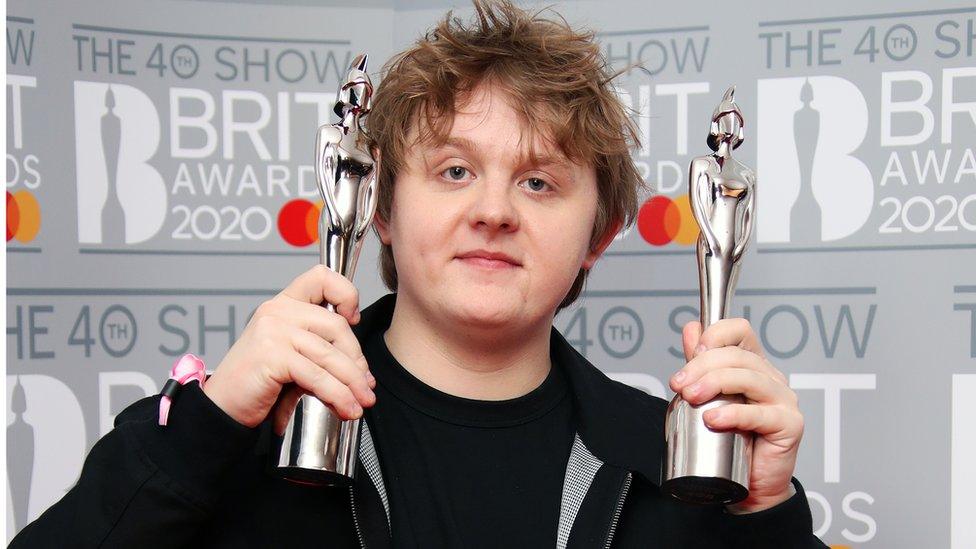
The night's big winner was Lewis Capaldi who, admittedly, is a more traditional type of pop star: He's signed to a major label, works with a team of established songwriters and scored a massive worldwide hit a heart-rending ballad that's not a million miles away from Adele's Someone Like You (even the title, Someone You Loved, was similar).
But even he has found a modern route to fame - amassing 4.8 million followers on Instagram after a series of viral posts - many of which involve his toilet habits (he once filmed himself scouring LA for a plunger after blocking his hotel toilet).
His humour and relatability puncture the pop star bubble. Even when accepting the award for best single, he thanked his mum and dad "for making love", before awkwardly dedicating the prize to his late grandmother, who inspired the song: "Thanks to my grandmother... er, I guess, for dying."
Celebrating all of these fresh, young voices made the 2020 Brits feel, for once, like they were on the cutting edge (until Rod Stewart turned up for the encore, at least).
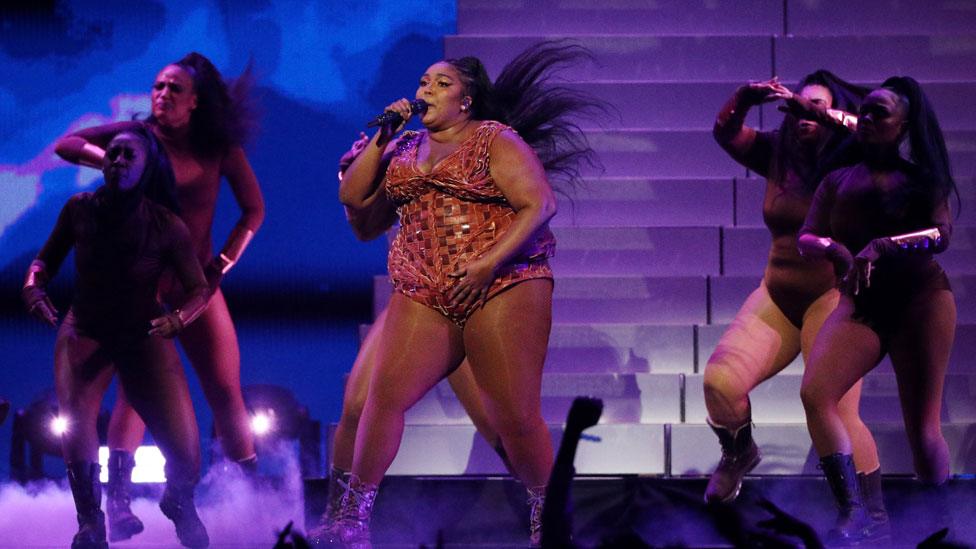
Until, that is, if you studied the nominations - where just one British female artist, Mabel, was considered worthy of inclusion in the categories where men and women compete.
Asked about the discrepancy, Geoff Taylor, CEO of the Brits and the record industry body the BPI, argued that men simply had a better year.
"There's been a lot of success for male acts in 2019 - and with grime and hip-hop doing very well, they are more male-dominated genres," he told Music Week, external.
"The Brits really is a reflection of what's going on in the business."
That second half of that statement gets closer to the truth.
Last year, just 20% of the musicians signed to a UK record label were women. Until that imbalance is rectified, true balance at awards shows (and on festival line-ups) will be an impossible dream.

Follow us on Facebook, external, or on Twitter @BBCNewsEnts, external. If you have a story suggestion email entertainment.news@bbc.co.uk, external.
- Published19 February 2020
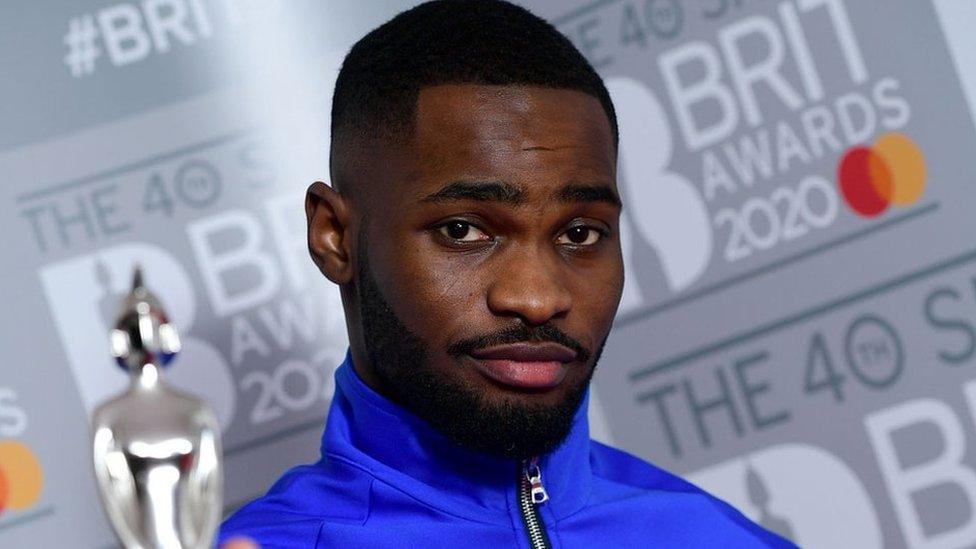
- Published18 February 2020
